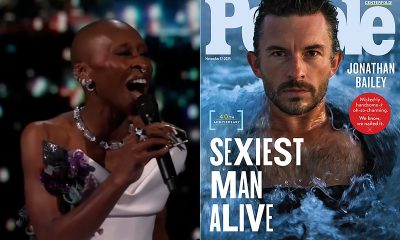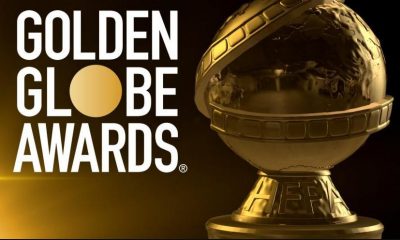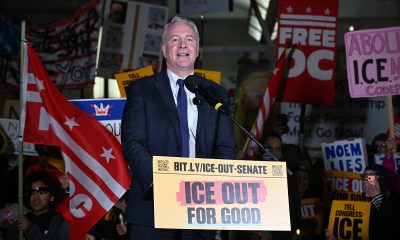Arts & Entertainment
2025 Emmy nominations: ‘Hacks’ and ‘The Last of Us’ bring queer excellence to the table
Notable LGBTQ+ shows nominated at this year’s Primetime Emmys
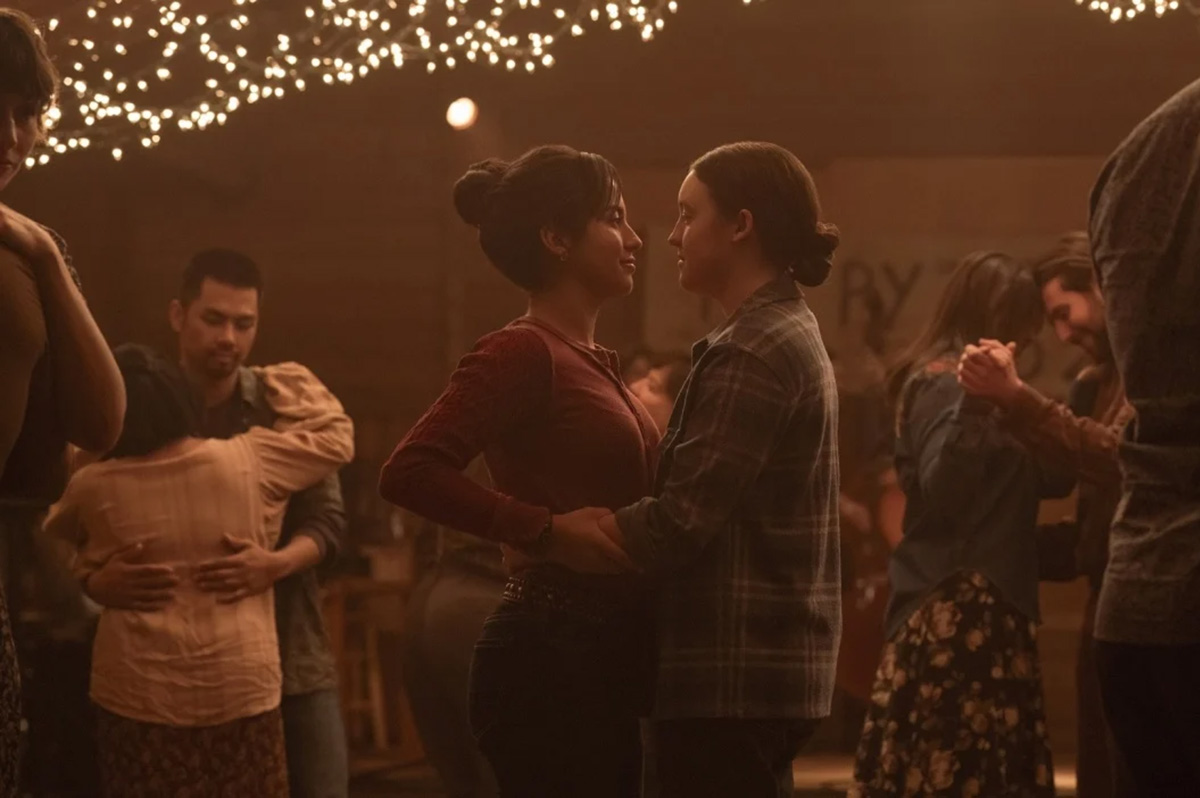
The 2025 Primetime Emmy nominations were announced, and a few of this year’s key frontrunners have particularly resonated with the LGBTQ+ community during a politically turbulent year.
Coming off Season 3’s win for outstanding comedy series, Hacks Season 4 was nominated for 14 awards, with Jean Smart, Hannah Einbinder, Julianne Nicholson, and Robby Hoffman being recognized for their performances. Since the show premiered in 2021, each season has explored the comedy and entertainment industry through the lens of generational differences between queer writer Ava (Einbinder) and the old-school Deborah (Smart).
While Smart has won outstanding lead actress in a comedy series for all three seasons, this year could be the chance for Einbinder, who identifies as bisexual, to finally take home a prize of her own in supporting actress. And if Season 4 nabs the outstanding comedy series crown yet again, it’ll be another huge moment for bisexual representation. But it will have to fend off the industry satire The Studio, which received a staggering 23 nominations for its breakout first season.
Another one of this year’s most high-profile contenders, The Last of Us, received 16 nominations for its second season, including non-binary actor Bella Ramsey, lead actor Pedro Pascal, and supporting/guest actors Kaitlyn Dever, Jeffrey Wright, Joe Pantoliano, and Catherine O’Hara.
Notably, though, Season 2 has been hit by much more backlash, much of which has been fueled by homophobic anger at the love story between Ellie (Ramsey) and Dina (Isabela Merced). Merced, who identifies as queer, was widely praised for her turn as Dina, but was not nominated for supporting actress. And while Season 1 received 24 nominations, Season 2 lost out on a few, bringing The Last of Us down a notch in its overall standing.
There were other snubs as well. Mid-Century Modern, the gay sitcom starring Nathan Lane, Matt Bomer, Nathan Lee Graham, and Linda Lavin, did not see any of its actors nominated. It also missed out on the Best Comedy Series category, for which it was considered a contender, although it did still receive four below-the-line nominations.
However, other openly queer actors were nominated, even for roles or shows not explicitly exploring queer issues or characters. Those include Colman Domingo for The Four Seasons, Cynthia Erivo for Poker Face, Michael Urie for Shrinking, Cooper Koch for Monsters: The Lyle & Erik Menendez Story, and Bowen Yang for Saturday Night Live.
Of course, it wouldn’t be the Emmys without RuPaul, who became the most-nominated reality host in Emmys history after landing his 10th nomination for RuPaul’s Drag Race. He’s also nominated alongside Alan Cumming of The Traitors fame. And in the Outstanding Documentary or Nonfiction special category, the critically acclaimed Will & Harper and Pee-wee as Himself were nominated, and are both considered strong contenders to win.
TV fans can find out which of their favorite queer actors or shows take home top prizes on Sunday, Sept. 14, with Nate Bargatze hosting the 77th annual awards at the Peacock Theater in Los Angeles.
Theater
Voiceless ‘Antony & Cleopatra’ a spectacle of operatic proportions
Synetic production pulls audience into grips of doomed lovers’ passion
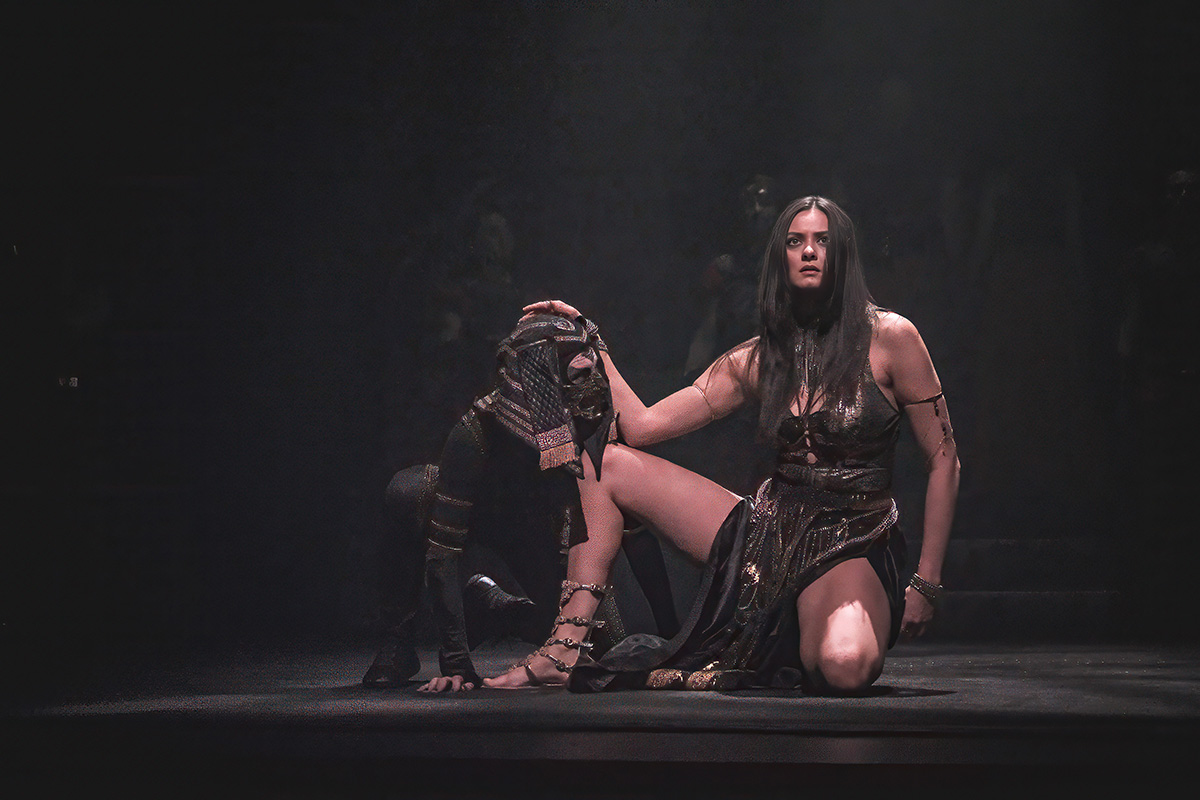
‘Antony & Cleopatra’
Through Jan. 25
Synetic Theater at
Shakespeare Theatre Company’s Klein Theatre
450 7th St., N.W.
Synetictheater.org
A spectacle of operatic proportions, Synetic Theater’s “Antony & Cleopatra” is performed entirely voiceless. An adaptation of the Bard’s original (a play bursting with wordplay, metaphors, and poetic language), the celebrated company’s production doesn’t flinch before the challenge.
Staged by Paata Tsikurishvili and choreographed by Irina Tsikurishvili, this worthy remount is currently playing at Shakespeare Theatre Company’s Klein Theatre, the same venue where it premiered 10 years ago. Much is changed, including players, but the usual inimitable Synectic energy and ingenuity remain intact.
As audiences file into the Klein, they’re met with a monumental pyramid bathed in mist on a dimly lit stage. As the lights rise, the struggle kicks off: Cleopatra (Irina Kavsadze) and brother Ptolemy (Natan-Maël Gray) are each vying for the crown of Egypt. Alas, he wins and she’s banished from Alexandria along with her ethereal black-clad sidekick Mardian (Stella Bunch); but as history tells us, Cleopatra soon makes a triumphant return rolled in a carpet.
Meanwhile, in the increasingly dangerous Rome, Caesar (memorably played by Tony Amante) is assassinated by a group of senators. Here, his legendary Ides of March murder is rather elegantly achieved by silver masked politicians, leaving the epic storytelling to focus on the titular lovers.
The fabled couple is intense. As the Roman general Antony, Vato Tsikurishvili comes across as equal parts warrior, careerist, and beguiled lover. And despite a dose of earthiness, it’s clear that Kavsadze’s Cleopatra was born to be queen.
Phil Charlwood’s scenic design along with Colin K. Bills’ lighting cleverly morph the huge pyramidic structure into the throne of Egypt, the Roman Senate, and most astonishingly as a battle galley crashing across the seas with Tsikurishvili’s Antony ferociously at the helm.
There are some less subtle suggestions of location and empire building in the form of outsized cardboard puzzle pieces depicting the Mediterranean and a royal throne broken into jagged halves, and the back-and-forth of missives.
Of course, going wordless has its challenges. Kindly, Synectic provides a compact synopsis of the story. I’d recommend coming early and studying that page. With changing locations, lots of who’s who, shifting alliances, numerous war skirmishes, and lack of dialogue, it helps to get a jump on plot and characters.
Erik Teague’s terrific costume design is not only inspired but also helpful. Crimson red, silver, and white say Rome; while all things Egyptian have a more exotic look with lots of gold and diaphanous veils, etc.
When Synetic’s voicelessness works, it’s masterful. Many hands create the magic: There’s the direction, choreography, design, and the outrageously committed, sinewy built players who bring it to life through movement, some acrobatics, and the remarkable sword dancing using (actual sparking sabers) while twirling to original music composed by Konstantine Lortkipanidze.
Amid the tumultuous relationships and frequent battling (fight choreography compliments of Ben Cunis), moments of whimsy and humor aren’t unwelcome. Ptolemy has a few clownish bits as Cleopatra’s lesser sibling. And Antony’s powerful rival Octavian (ageless out actor Philip Fletcher) engages in peppy propaganda featuring a faux Cleopatra (played by Maryam Najafzada) as a less than virtuous queen enthusiastically engaged in an all-out sex romp.
When Antony and Cleopatra reach their respective ends with sword and adder, it comes almost as a relief. They’ve been through so much. And from start to finish, without uttering a word, Kavsadze and Tsikurishvili share a chemistry that pulls the audience into the grips of the doomed lovers’ palpable passion.
Out & About
Love board games and looking for love?
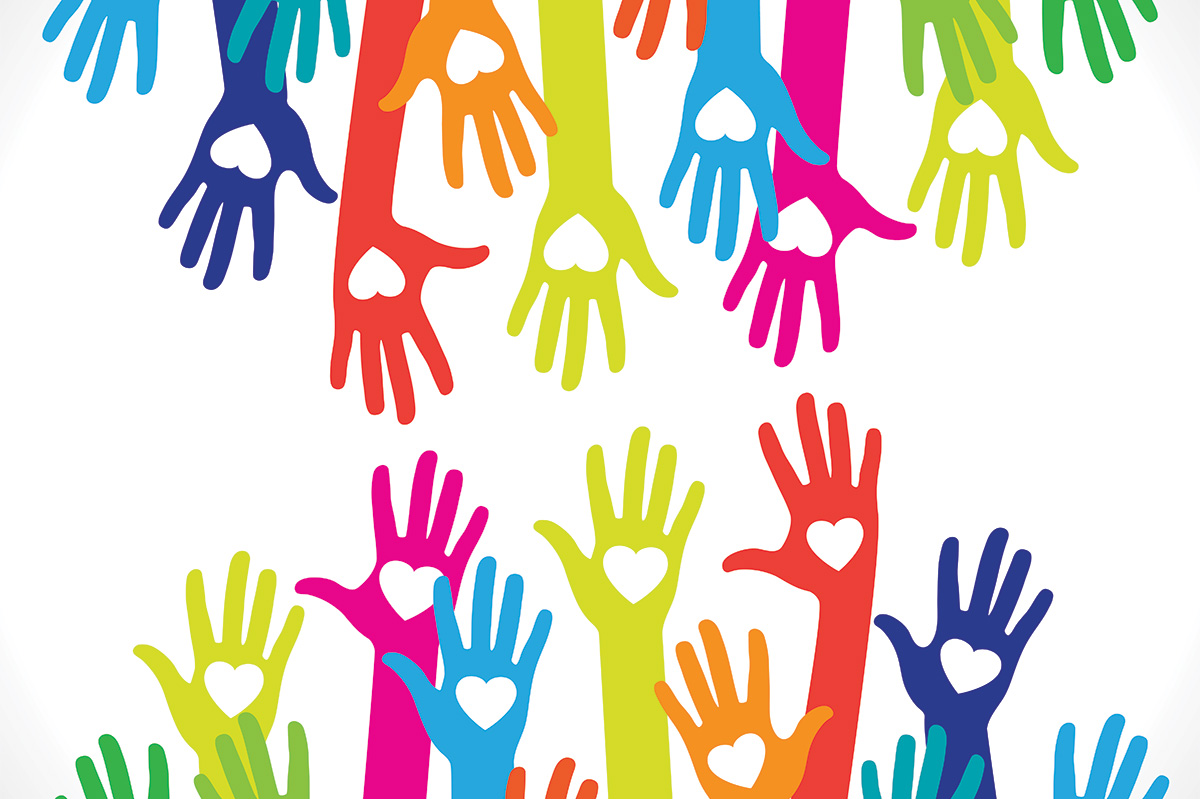
Quirk Events will host “Board Game Speed Dating for Gay Men” on Thursday, Jan. 22 at 7 p.m. at KBird DC.
Searching for a partner can be challenging. But board games are always fun. So what if you combined board games and finding a partner?
Picture this: You sit down for a night of games. A gaming concierge walks you through several games over the course of the night. You play classics you love and discover brand new games you’ve never heard of, playing each with a different group of fun singles. All while in a great establishment.
At the end of the night, you give your gaming concierge a list of the folks you met that you’d like to date and a list of those you met that you’d like to just hang out with as friends. If any two people put down the same name as each other in either column, then your gaming concierge will make sure you get each other’s e-mail address and you can coordinate a time to hang out.
Tickets cost $31.80 and can be purchased on Eventbrite.
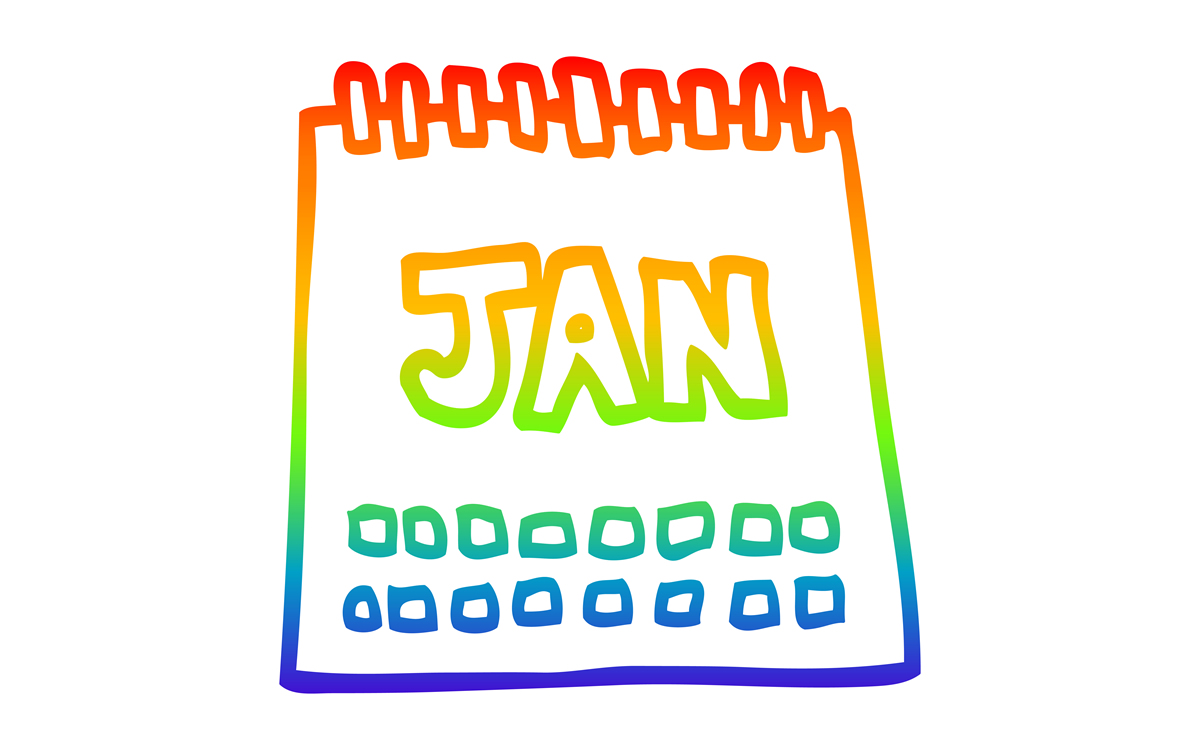
Friday, January 16
Friday Tea Time will be at 12 p.m. at the DC Center for the LGBT Community. This is a social hour for older LGBTQ+ adults. Bring your beverage of choice. For more information, contact Mac ([email protected]).
Trans and Genderqueer Game Night will be at 7 p.m. at the DC LGBTQ+ Community Center. This is a relaxing, laid-back evening of games and fun. For more details, visit the DC Center’s website.
Go Gay DC will host “LGBTQ+ Social in the City” at 7 p.m. at Hotel Zena. This event is ideal for making new connections and community building or just to unwind and enjoy extended happy hour. Attendance is free and more details are available on Eventbrite.
Saturday, January 17
Go Gay DC will host “LGBTQ+ Community Brunch” at 11 a.m. at Freddie’s Beach Bar & Restaurant. This fun weekly event brings the DMV area LGBTQ+ community, including allies, together for delicious food and conversation. Attendance is free and more details are available on Eventbrite.
The DC LGBTQ+ Community Center and SMYAL will host a free film screening of “Mama Bears” celebrating queer youth, resilience, and the power of living authentically. Whether you’re a movie lover, looking to make new friends, or simply want a safe, affirming space to relax, this event is for you. Click this link to RSVP.
LGBTQ People of Color will be at 7 p.m. on Zoom. This peer support group is an outlet for LGBTQ people of color to come together and talk about anything affecting them in a space that strives to be safe and judgement free. There will be all sorts of activities like watching movies, poetry events, storytelling, and just hanging out with others. For more details, visit thedccenter.org/poc or facebook.com/centerpoc.
Sunday, January 18
Go Gay DC will host “LGBTQ+ Community and Conversation” at noon at As You Are. This event is for those looking to make more friends and meaningful connections in the LGBTQ+ community. Look for the Go Gay DC sign on the long table near the front window. Attendance is free and more details are available on Eventbrite.
Monday, January 19
“Center Aging: Monday Coffee Klatch” will be at 10 a.m. on Zoom. This is a social hour for older LGBTQ adults. Guests are encouraged to bring a beverage of choice. For more information, contact Adam ([email protected]).
Tuesday, January 20
Center Bi+ Roundtable will be at 7 p.m. on Zoom. This is an opportunity for people to gather in order to discuss issues related to bisexuality or as Bi individuals in a private setting.Visit Facebook or Meetup for more information.
Tae Kwon Do Class with Avi Rome will be at 12:30 p.m. This inclusive and beginner-friendly class, led by Instructor Avi Rome, offers a light warm-up, stretching, and instruction in basic techniques, patterns, and striking padded targets. Each session is designed to be adaptable for all ability and mobility levels, creating a welcoming space for everyone to build strength, confidence, and community through martial arts. For more details, visit the DC Center’s website.
Wednesday, January 21
Job Club will be at 6 p.m. on Zoom upon request. This is a weekly job support program to help job entrants and seekers, including the long-term unemployed, improve self-confidence, motivation, resilience and productivity for effective job searches and networking — allowing participants to move away from being merely “applicants” toward being “candidates.” For more information, email [email protected] or visit thedccenter.org/careers.
Thursday, January 22
The DC Center’s Fresh Produce Program will be held all day at the DC Center for the LGBT Community. People will be informed on Wednesday at 5 p.m. if they are picked to receive a produce box. No proof of residency or income is required. For more information, email [email protected] or call 202-682-2245.
Virtual Yoga Class will be at 7 p.m. on Zoom. This free weekly class is a combination of yoga, breathwork and meditation that allows LGBTQ+ community members to continue their healing journey with somatic and mindfulness practices. For more details, visit the DC Center’s website.
-

 Iran5 days ago
Iran5 days agoGrenell: ‘Real hope’ for gay rights in Iran as result of nationwide protests
-

 Congress5 days ago
Congress5 days agoVan Hollen speaks at ‘ICE Out for Good’ protest in D.C.
-

 LGBTQ Non-Profit Organizations5 days ago
LGBTQ Non-Profit Organizations5 days agoNational LGBTQ Task Force brings Creating Change conference back to D.C.
-

 Virginia5 days ago
Virginia5 days agoMark Levine loses race to succeed Adam Ebbin in ‘firehouse’ Democratic primary



